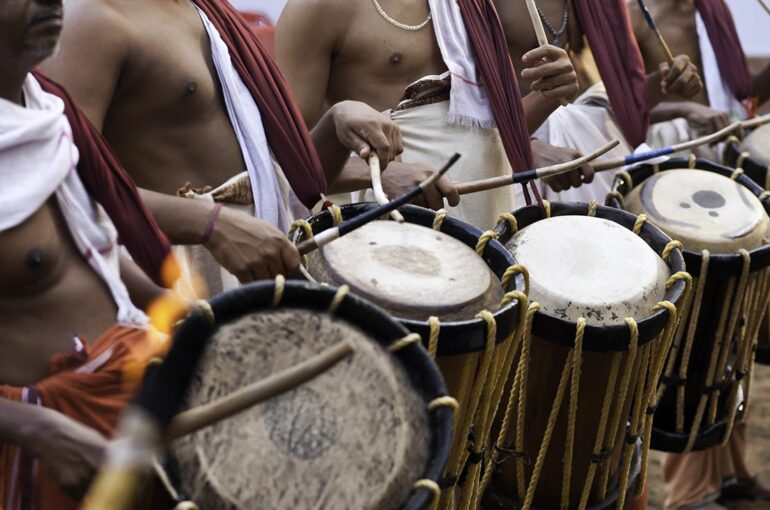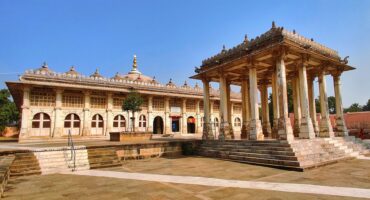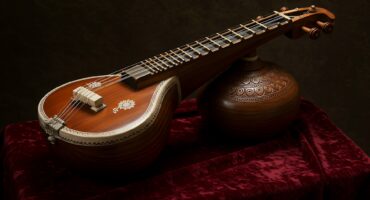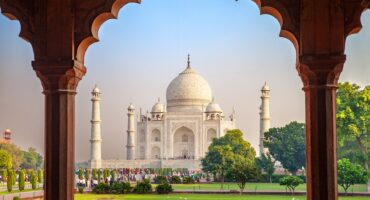The Kerala Bucket List – 13 Impressive Festivals You Need To Do
The Kerala Bucket List – 13 Impressive Festivals You Need To Do

Festivals are a celebration of our culture and Mythological legacy which have been passed on from generation to generation. If one were to deep dive into the festival calendar of the country taking into account every nook and corner, it is quite possible that all 365 days are festival days in India. While I could talk about the numerous exciting festivals like Diwali, Dussehra and Holi, I have a certain affinity to the spirit that encapsulates the festivities in Kerala – booming sounds of percussion instrument, the loud chimes of native cymbals and the melodious tunes coming from the windpipe played by men clad in pristine white dhotis accompanied by the majestic elephants amidst a riot of colors and enthusiastic devotees dancing away in enchantment. While this is how a majority of festivals are celebrated in Kerala, the state also celebrates the expression of art in its various forms in a big way.
Here are the 13 impressive festivals of Kerala which are a window to the culture and tradition of this ancient land:-
Theyyam

Why: Gods descend on earth
Where: North Kerala
When: November to April (every year)
A fascinating religious ritual of Kerala; intense, dark, and almost scary, which incorporates dance, mime and music, to celebrate an ancient tribal culture, which attaches great importance to the worship of heroes and ancestral spirits. In a Theyyam an oracle offers his body to the spirits –sometimes that of an ancestor, maybe a great forest hero of the yore or a serpent goddess – as a medium to communicate with the villagers, understand their problems, offer solutions and bless them. People wanting counsel approach the Oracle in a trance-eyes bulging and rolling back- with their questions. Answers are given in whispers, and sometimes in extensive outbursts. It is believed by the locals that the Oracle of a Theyyam possessed by spirits can cure an illness, ensure a good harvest or drive away evil spirits.
Kochi-Muziris Biennale, Kochi (Art Festival)

Why: the second edition of the first biennale of its kind to be held in India
Where: Kochi, Ernakulam and Mattancherry
When: 12th December 2018 to 29th March 2019

An art festival boasting 14 venues across Fort Kochi, Ernakulam and Mattancherry is a pilgrimage for those with a zest for art and artistic expression. This festival brings almost 80 artists from 24 countries from across the world presenting their paintings, sculptures, installations, films and performing arts. This stage brings under one roof the traditional and contemporary art forms in a historic setting which makes for an eye catching and interesting juxtaposition. It is a festival not to be missed.
Kochi Carnival, Fort Kochi

Why: Immersion in the cultural and fun side of Cochin
Where: Fort Kochi
When: 1st January 2019
The beach at Fort Kochi wears a carnival spirit a little before Christmas and all the way up to New Years. The Kochi Carnival is a melting pot of Cochin’s traditions which have shaped the city’s diverse outlook. Dating back to the Portuguese New Year revelry the carnival has now been tweaked to include the native cultural performances as well as entertainment in the form of various programs and competitions. The carnival ends with a carnival rally on the New Year day when people throng the streets to enjoy the festivities.
Nishagandhi Dance Festival

Why: Brings together the art forms of India under one roof
Where: Trivandrum
When: 20th January 2019
This 7 days open air festival showcases the cultural heritage of India through its classical dances, folk dances and folk music. Hosted by the Kerala tourism corporation, performers from across the country partake in this colourful festival. The adjacent ground showcases the traditional handicrafts from various states of the country along with the food stalls that are set up to get a taste of India. The entry to the festival is free and is a fascinating glimpse into the true spirit of India.
Thaipooyam Mahotsavam

Why: Devotees carrying decorated Kavadis where some dance in a trance
Where: Haripad
When: 21st January 2019
The Thaipooyam festival is a one day festival known for its high energy celebrations. This festival sees devotees carrying Kavadis (richly decorated wooden arches decorated with flowers and peacock feathers) dancing away to the beats of the traditional musical instruments and cheering crowds as they make their way to the temple. The Kavadis are an offering to the presiding deity, Subramanya, for a wish that one makes or has already made. The religious devotion and the positive energy surrounding the venue is transcendental.
Machattu Mamangam

Why: Witness the giant effigies of horses being brought by devotees to the temple
Where: Thrissur
When: 19th February 2019
This festival, a 5 day festival held in Thrissur, is as grand as any of the other festivals. The highlight of the festival is on the last day where giant effigies of the horses are brought as an offering to the Goddess by each village. These devotees who carry these effigies are accompanied by traditional percussionists to keep the excitement going while onlookers cheer the devotees carrying the effigy. The evenings are reserved for elephant pageantry and various cultural art forms being performed on all days.
Attukal Pongala Festival

Why: Only women participate in this festival
Where: Trivandrum
When: 20th Feb 2019
A one of a kind festival which is also the largest congregation of women engaged in a religious activity, the Attukal Pongala has the entire city engulfed in a festive mood. The women folk cook Pongala, a ritualistic offering of a sweet dish consisting of rice porridge, sweet brown molasses, coconut gratings, nuts and raisins to appease the Goddess presiding the Attukal Bhagavathi Temple. The Pongala is cooked in earthen pots over a traditional firewood hearth made from scratch with the items brought from home. The Priests then come around and sprinkle the holy water used to worship the goddess in each of the pots which is then taken home by the women to distribute amongst their family, friends and relatives.
Arattu

Why: 7 and a half elephants in solid gold are displayed to the public
Where: Ettumanoor
When: 24th March 2019
The arattu (translates to Holy Bath) at the Ettumanoor Mahadeva Temple is a 10 day event celebrated on a grand scale. The major event of this 10 day festival is on the 8th day when the 7 and a half elephants made of solid gold, gifted by the then Maharaja of Travancore in 1759, are brought out for the public to view. On the 10th day the presiding idol is taken in a grand procession led by 10 caparisoned elephants to a nearby pond. The 10 day festival sees a number of stunning cultural performances in the temple premises.
Nemmara Vallanghy Vela

Why: the festive energy of the two villages battling it out accompanied by decorated elephants
Where: Nemmara
When: 3rd April 2019
Nemmara Vallanghy Vela is a festival that matches the magnitude of the Thrissur Pooram. The festival is a battle of sorts between the neighboring villages of Nemmara and Vallanghy, which adds to the fun factor of this festival. There are at least 30 caparisoned elephants that are brought to the battle field which make their way to the temple, it is here the two sides engage in a face-off for the best musical performance using the traditional instruments. Another highlight is the ornate Elephant stable illuminated by multi-colored electric lights as well as the splendid fire work display.
Kodungalloor Bharani

Why: A parade of the oracles hurling abuses of praise at the presiding goddess
Where: Thrissur
When: 7th April 2019
The Bhagvathy temple in Kodungalloor, the erstwhile capital of ancient Kerala, is a sea of red during this festival. Oracles, both men and women, dressed in red carrying shiny swords dance away in a spiritual fervor to the rhythmic and high energy beats of musical instruments. In this trance they go around the temple striking the rafters and hurling abuses at the Goddess. Legend has it that the goddess absorbs all the frustration of her devotees; the temple remains closed for 7 days thereafter for restoring the sanctity and purifying the goddess.
Thrissur Pooram

Why: It is the largest and grandest festival in Kerala
Where: Thrissur
When: 13th May 2019
Thrissur pooram a 7 day festival celebrated at the Vadakkumnathan temple in Thrissur is considered to be the mother of all temple festivals in Kerala. With a history panning 3 centuries, it is a friendly competition between the temples to the east and west of Thrissur who try to out-do each other. The festival is mix of carnival spirit and religious conservatism which makes it stand apart. The highlight, which is on the 7th day, is the 15 stunningly decorated elephants on each side and the outstanding firework display that marks the end of the festival which turns out to be a 36 hour hi-tempo non-stop celebration.
Pulikali

Why: Big Bellies painted with the faces of tigers and the vibes
Where: Thrissur
When: 14th September 2019
Thrissur is host to the annual Tiger dance festival, locally known as the Pulikali. This unique dance festival sees the participation of 6 to 8 teams from across the city. The morning is spent in getting the faces of tigers, lions and panthers painted on the rotund bellies of the participants, some in vivid colors of fluorescent, green and even pink!! Accompanied with the beats of drums each of the teams then compete against each other in a street parade. The winning team is selected by a panel of judges based on the synchronization and the number of large bellies that jiggle to make the faces of the big cats look ferocious. The surreal vibes that accompany this parade is not to be missed.
Aranmula Boat race

Why: The snake boat race and discovering its fascinating history
Where: Aranmula, Alleppey district
When: 15th September 2019
The Aranmula Boat race is a 2 day event which is celebrated with much grandeur on the Pampa Lake. It is one of the oldest boat races in Kerala which evolved over years as an offering to the presiding deity at the nearby Aranmula Parthasarathy Temple. A race between the long war boats is more a ritual than a competition. The interesting story behind this festival (which one will discover) adds to the significance of this boat race.
DISCLAIMER:
The festival dates are decided on the basis of the Malyalam Calendar and their local customs, thus, dates can be confirmed only 3 months (or less) prior to the festival. Non-Hindus are not allowed in the inner sanctum of the temples. Those attending the festivals are requested to dress modestly. All festivals are local events and chances are the timings may vary. It is highly recommended that the one is accompanied by local guides when attending a festival as the locations may sometimes be remote and the festivities are held in the evenings.










